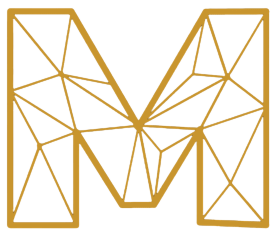MAI-Motion: Enhancing Rehabilitation with Advanced Technology

Rehabilitation plays a crucial role in recovering from injuries and managing chronic musculoskeletal conditions. Traditional methods often rely on subjective assessments and limited data. MAI-Motion, developed by MSK Doctors in collaboration with the University of Lincoln, offers a revolutionary approach to rehabilitation by providing precise, data-driven insights into human motion and biomechanics.
What is MAI-Motion?
MAI-Motion is an advanced system that combines motion capture, 3D imaging, and artificial intelligence (AI) to analyse human movement. This comprehensive technology provides detailed insights into joint movements, muscle activation, and overall biomechanical performance, making it a powerful tool for rehabilitation.
How Does MAI-Motion Improve Rehabilitation?
- Objective Data Analysis: MAI-Motion uses motion capture technology to record the precise movements of specific body parts or joints. This data is then analysed using AI algorithms to provide accurate measurements and detailed analysis. By integrating 3D imaging techniques like MRI scans, MAI-Motion offers a comprehensive view of musculoskeletal health.
- Personalised Rehabilitation Plans: With detailed insights into a patient's biomechanics, MAI-Motion helps healthcare professionals develop tailored rehabilitation plans. These personalised plans address the unique needs of each patient, enhancing recovery and improving outcomes.
- Continuous Monitoring: MAI-Motion allows for continuous monitoring of a patient’s progress during rehabilitation. This ongoing assessment helps therapists adjust treatment plans as needed, ensuring that patients receive the most effective care.
Benefits of MAI-Motion in Rehabilitation
- Precision Tracking: MAI-Motion tracks the movement of specific body parts with exceptional accuracy. This precision tracking helps identify areas of weakness or abnormal movement patterns, allowing therapists to focus on specific issues during rehabilitation.
- Enhanced Diagnosis: The detailed analysis provided by MAI-Motion enables more accurate diagnoses of musculoskeletal conditions. This enhanced diagnosis helps ensure that patients receive the right treatment for their specific condition.
- Improved Patient Engagement: By providing objective data and visual feedback, MAI-Motion helps patients understand their progress and stay motivated during rehabilitation. This improved engagement can lead to better adherence to rehabilitation programs and faster recovery.
Real-World Applications
- Physical Therapy: Physical therapists can leverage MAI-Motion to monitor and track patient progress during rehabilitation. The objective data provided by MAI-Motion helps therapists adjust treatment plans as needed, ensuring effective and efficient rehabilitation.
- Sports Medicine: Sports medicine professionals can use MAI-Motion to analyse athletes’ biomechanics and develop strategies to enhance performance and prevent injuries. This detailed analysis is invaluable for understanding the mechanics of sports-related injuries.
- Orthopaedics: Orthopaedic specialists can use MAI-Motion to assess joint function, evaluate gait abnormalities, and optimise surgical planning. The detailed motion analysis provided by MAI-Motion enhances the accuracy of these assessments, leading to better patient outcomes.
The Future of Rehabilitation
MAI-Motion represents a significant advancement in rehabilitation technology. Its ability to capture and analyse detailed motion data provides healthcare professionals with the insights they need to develop personalised treatment plans and monitor patient progress. With MAI-Motion, patients can achieve better outcomes and improve their quality of life.
Product
Office
Subscribe to our Newsletter
We deliver high quality blog posts written by professionals weekly. And we promise no spam.

MAI Motion
© 2024 Mai Motion. All Rights Reserved.